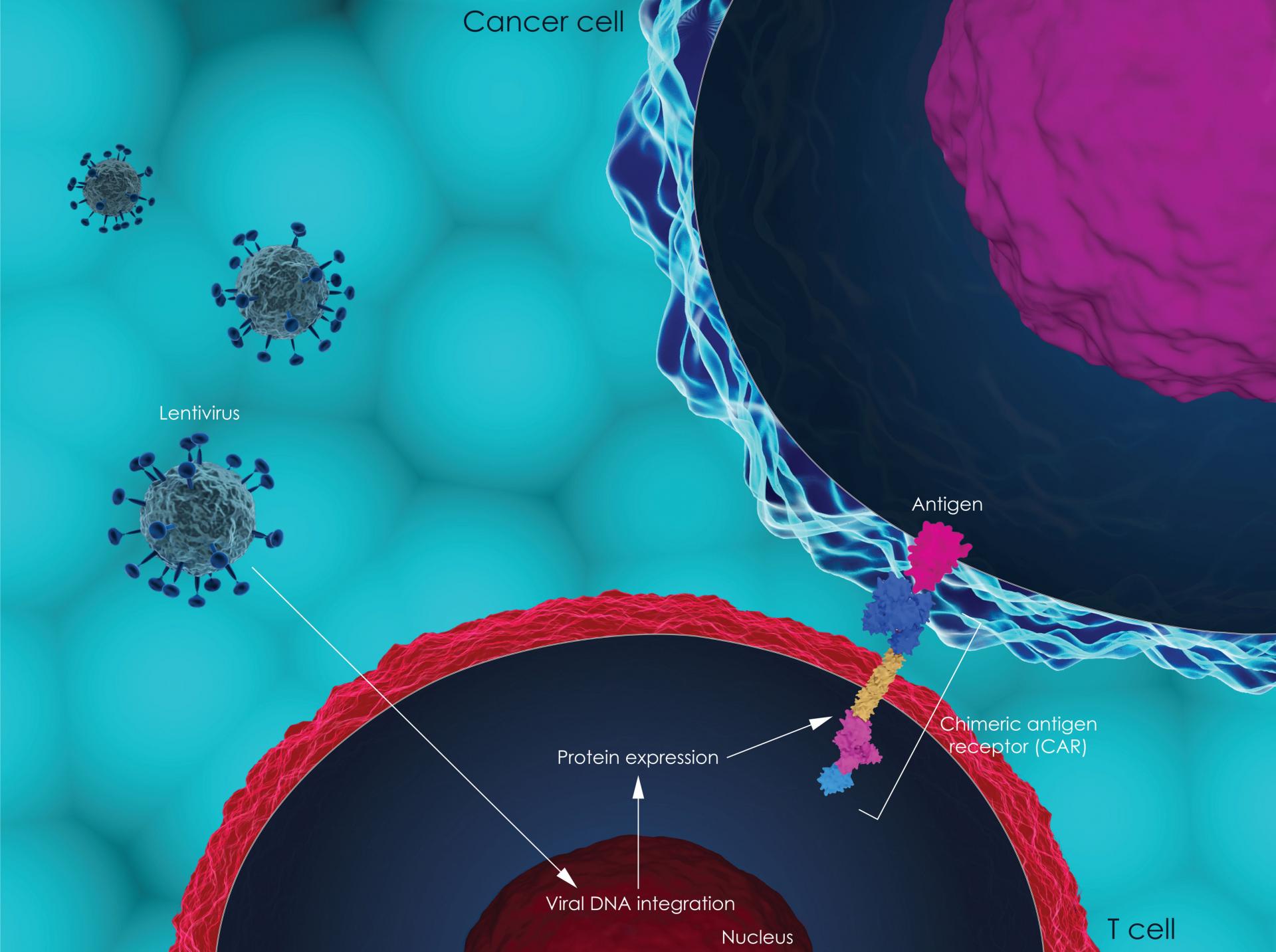Behind the headline: Has CAR T-cell therapy got 'cancer on the run'?
Published on: 21 June 2019It is true that CAR T-cells are a new type of treatment that could transform the prognosis for some people with difficult-to-treat lymphoma. However, it can have serious side effects and research is still ongoing to find out the long-term effects of the treatment.

You may have seen or heard in the news today the story of Mike who has had CAR T-cell therapy for his lymphoma at King's College Hospital. A BBC News article describes it as a 'living drug (that) has cancer on the run', stating that some people with lymphoma are being cured in a way 'never seen before'.
It is true that CAR T-cells are a new type of treatment causing great excitement as it could transform the prognosis for some people with difficult-to-treat lymphoma. New treatment options are urgently needed for people who don't respond to chemotherapy.
High-grade B-cell lymphomas like diffuse large B-cell lymphoma (DLBCL) can often be successfully treated. But if first line treatment doesn't work (the lymphoma is refractory) or lymphoma comes back, treatment can be difficult. Most people then have 'salvage' chemotherapy and possibly a stem cell transplant.
Options are then very limited for people who do not go into remission with salvage chemotherapy, or for whom the lymphoma comes back again. It might be possible to have more chemotherapy, targeted drugs (often in clinical trials) or a donor (allogeneic) stem cell transplant. CAR T-cells are a new treatment option that have shown promising results in clinical trials. However, they can have serious side effects. Research is ongoing to find out the long-term effects of the treatment.
What are CAR T-cells?
T cells (T lymphocytes) are cells of your immune system. They help your body fight infections and disease, including cancer.
Sometimes, abnormal cells can't be detected by your immune system and build up into a cancer. In CAR T-cell therapy, your own T cells are collected and genetically modified (changed) to recognise and kill lymphoma cells.
A 'chimeric antigen receptor' (CAR) that recognises proteins on cancer cells is joined onto your T cells. Stimulatory domains are also added, which help the CAR T-cells to multiply and persist in your body.
The genetically modified T cells (CAR T-cells) are grown in the laboratory until there are enough of them, then they are given back to you, like a blood transfusion.
Learn more about CAR T-cell therapy on our website
Our Director Stephen Scowcroft appeared on BBC Newsroom Live this morning commenting on the news, you can watch the clip below.
This is a big step change in the treatment of blood cancer...the hope for us in the future is that it becomes available for more types of lymphoma
21 June 2019
Image at the top used under license from Shutterstock.com
